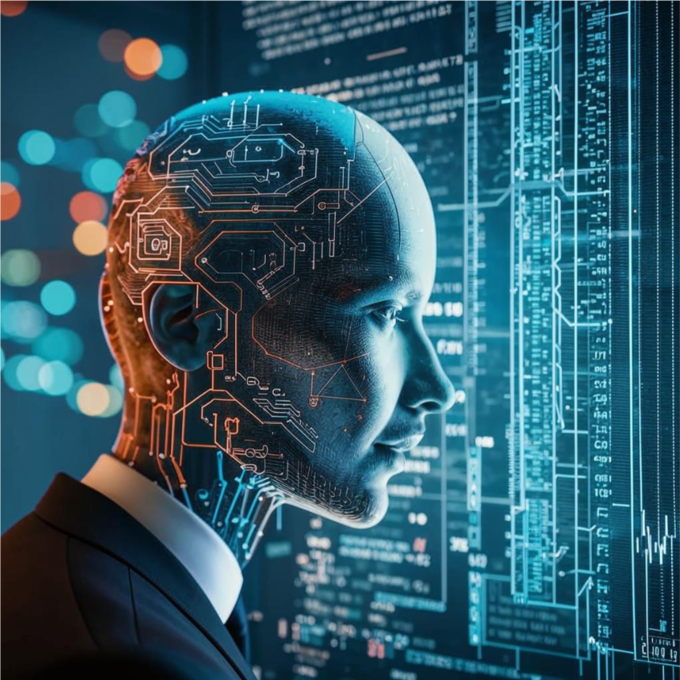Artificial Intelligence is no longer just a concept of science fiction; it’s reshaping the way we experience our world. From personalized recommendations to smart assistants, AI’s capabilities are expanding rapidly. One area where this technology shines brightly is in crafting interactive public events that captivate audiences and foster engagement like never before.
As events evolve from static presentations to dynamic experiences, AI plays a crucial role in enhancing interactivity. Imagine walking into an event where personalized interactions await you at every turn. This isn’t just a dream—it’s becoming our reality thanks to innovative uses of artificial intelligence. Whether you’re organizing festivals, conferences, or community gatherings, incorporating AI can elevate your event beyond expectations and create lasting memories for attendees.
Let’s explore how this powerful tool is transforming public events into immersive experiences that resonate with people long after they leave the venue.
The Rise of Interactive Public Events
Interactive public events have surged in popularity, reshaping how we connect and engage with our communities. Gone are the days of passive attendance; people now crave experiences that invite participation.
These events foster a sense of belonging. They encourage attendees to share ideas, collaborate, and express themselves creatively. From art installations to tech expos, the landscape is vibrant with opportunities for interaction.
Technology plays a crucial role in this transformation. Attendees can use apps or wearable devices to enhance their experience, making every moment memorable.
Social media amplifies these interactions before and after the event takes place. Participants are eager to share their experiences online, generating buzz and attracting even larger audiences for future gatherings.
In essence, interactive public events offer more than just entertainment; they create lasting connections among diverse groups of people.
Examples of Successful Interactive Events Utilizing AI
One standout example is the Coachella Valley Music and Arts Festival, which harnessed AI to create an immersive experience for attendees. Through a custom-built chatbot, guests received real-time information about performances, food options, and even personalized schedules based on their musical preferences.
Another inspiring case is the National Museum of Singapore. They employed augmented reality powered by AI to bring historical exhibits to life. Visitors could point their devices at artifacts and watch as stories unfolded in vibrant animations.
At the 2020 Tokyo Olympics, organizers used facial recognition technology for enhanced security and streamlined entry processes. This innovation not only improved efficiency but also created a sense of safety among participants.
These examples illustrate how AI can transform events into engaging experiences that resonate with audiences while offering practical solutions to enhance logistics and enjoyment alike.
Benefits of Using AI in Public Events
AI brings a plethora of benefits to public events, enhancing both the planning process and attendee experience. One significant advantage is personalization. AI can analyze data to tailor experiences for individuals, making each participant feel valued.
Efficiency is another key benefit. Automated systems streamline tasks such as registration and feedback collection. This allows event organizers to focus on creating engaging content rather than getting bogged down by logistics.
AI fosters interactivity. Attendees can engage with chatbots or virtual assistants that provide real-time information about schedules and activities. This enhances engagement levels throughout the event.
AI offers valuable insights post-event through analytics tools. Organizers gain a deeper understanding of attendee behavior and preferences, helping them refine future events for even greater success.
Challenges and Considerations When Implementing AI in Events
Implementing AI in public events comes with its own set of challenges. One major concern is data privacy. Attendees may be wary about how their personal information is collected and used. Ensuring transparency can help alleviate these fears.
Another issue is the technology’s reliability. Relying on AI systems means dealing with potential glitches or failures during crucial moments. Event planners must have backup plans to manage these risks effectively.
Human interaction remains essential, even in an age dominated by technology. While AI can enhance experiences, it shouldn’t replace genuine connections between attendees and hosts.
Budget considerations cannot be ignored. Advanced AI solutions often come at a premium cost that might not fit every event’s financial scope. Balancing innovation with affordability requires careful planning and research to find suitable options that align with goals while remaining within budget constraints.
Tips for Event Planners Looking to Incorporate AI
Start by exploring the various AI tools available. Research software that can enhance attendee engagement or streamline logistics. Each option has unique features tailored to different event needs.
Next, consider how AI can personalize experiences. Use data analytics to understand guest preferences and tailor content, recommendations, or networking opportunities accordingly.
Don’t forget about interactive elements. Incorporate chatbots for real-time information and assistance during events. This not only enhances communication but also allows guests to engage seamlessly.
Training staff on these technologies is crucial. Ensure your team feels comfortable using AI tools so they can assist attendees effectively.
Experiment with virtual reality options as well. Engaging visual experiences captivate audiences and create memorable interactions that stand out in their minds.
Always gather feedback post-event regarding the AI integration and its effectiveness from attendees’ perspectives for future improvements.
Conclusion
AI has proven to be a game changer for public events, transforming how audiences engage and interact. As technology continues to evolve, its applications in event planning become more sophisticated. Event organizers who embrace AI can create immersive experiences that captivate attendees.
The ability of AI to analyze data and personalize interactions is invaluable. It enables planners to tailor events that resonate deeply with participants’ interests. From chatbots providing instant information to live polling engaging crowds, the possibilities are expanding.
While there are challenges such as costs, technical expertise, and concerns over privacy, the rewards often outweigh these hurdles. Creative minds within the industry are finding innovative solutions for effective implementation.
For event planners eager to leverage AI’s potential, starting small can make a significant impact. Whether incorporating simple tools or experimenting with advanced technologies like virtual reality or machine learning algorithms—every step counts toward innovation.
As we look ahead, it’s clear that AI will continue shaping the landscape of interactive public events. Adapting and evolving alongside these changes will be key for those wanting to stay relevant in this dynamic environment.


